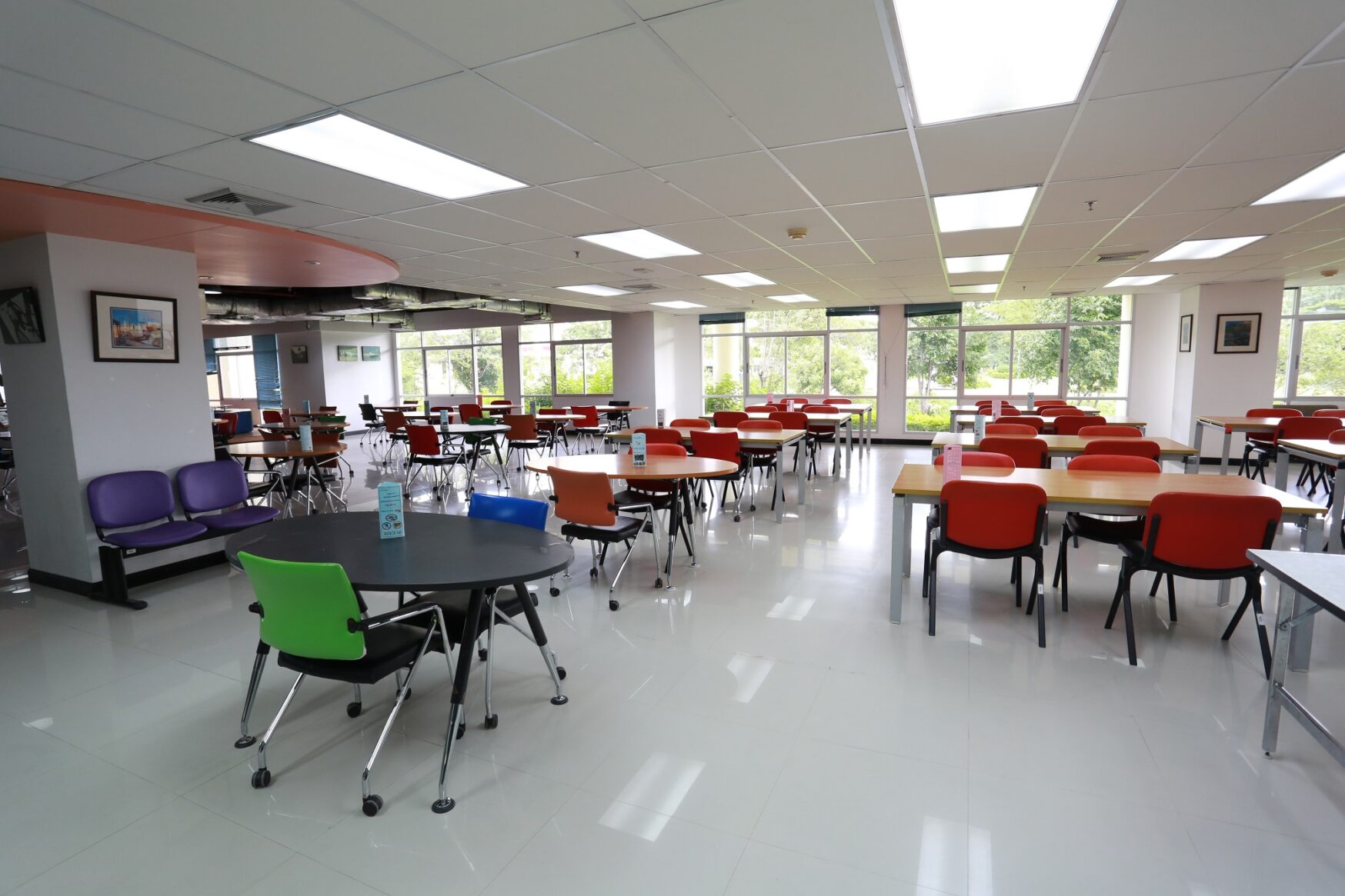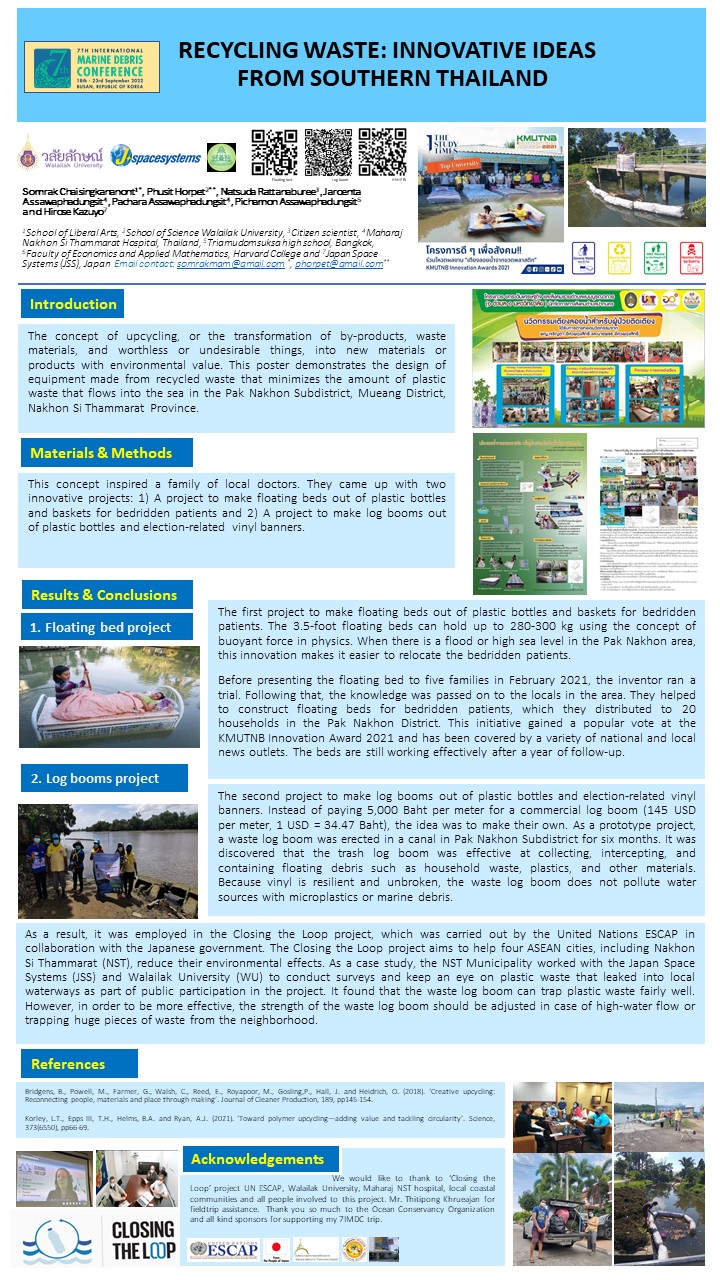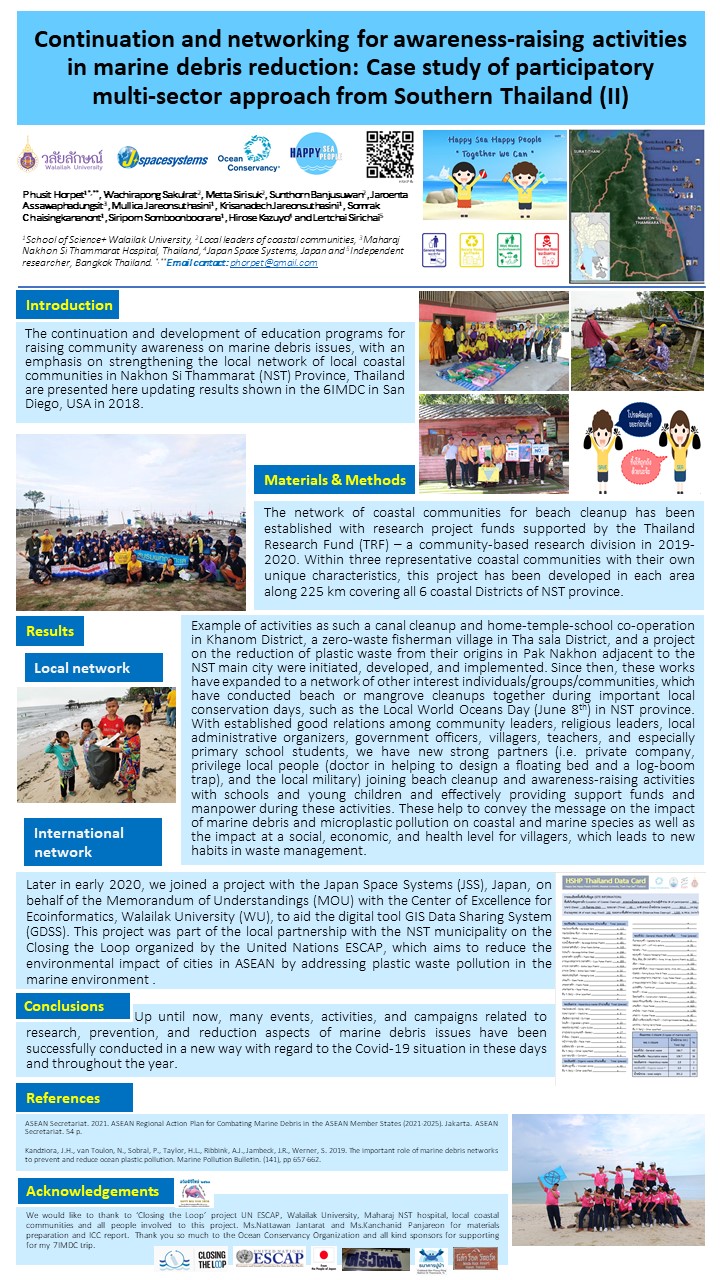Walailak University’s Annual Sustainability Report and Initiatives
Walailak University publishes an annual academic sustainability journal report every year continuously. For the publication of the 2022 annual report, the content includes descriptions of sustainability aspects of Walailak University, including:
1. Setting and Infrastructure
The emphasis is on the overarching strategy and fundamental infrastructure, encompassing policies and strategic planning, to transform the university into a sustainable institution. This involves the development of eco-friendly structures and sustainable innovations, forging global and national collaborations within a sustainable university network, fostering student clubs, maintaining a dedicated website, and conducting statistical analysis.


2. Energy and Climate Change
The primary focus lies in conserving energy and implementing initiatives to reduce energy consumption. This encompasses promoting activities aimed at minimizing energy use, adopting energy-efficient appliances, reducing carbon emissions and CO2 footprint, incorporating renewable energy sources, expanding green spaces, and engaging in reforestation efforts.
3. Waste
The primary attention is directed towards the management of solid waste and toxic or hazardous waste within the university. This includes implementing recycling programs, reducing paper and plastic usage, eliminating single-use plastics, managing organic and biodegradable waste, addressing toxic waste, and effectively disposing of sewage. The overarching goal is to minimize waste generation and maximize its reuse, recycling, and overall utilization.


4. Water
The primary emphasis is placed on the water conservation initiative, implementing water recycling programs, promoting the use of water-efficient appliances, and reducing tap water consumption.
5. Transportation
The central focus is on enhancing shuttle bus services, implementing a policy favoring zero-emission vehicles on campus, managing the parking area-to-campus size ratio, restricting car parking space, promoting carpooling, establishing a walk and bike-friendly community with complimentary bicycle-sharing services, and adopting clean energy transportation methods.


6. Education and Research
The primary focus centers on offering courses and subjects that pertain to sustainability, dedicating research funds to sustainability-focused research endeavors, creating learning environments and gardens centered around sustainability, organizing events that revolve around sustainability, and producing reports that document sustainability initiatives.
Furthermore, Walailak University excels in disseminating research in sustainability, waste management, the impact of waste, maximizing the benefit of recycling waste, reducing the use of paper or plastic waste, and management of organic and inorganic waste. They have established a student club led by university faculty experts. This club organizes activities, builds networks, and raises awareness about continuous efforts to reduce marine litter. For example, they engage in waste collection and segregation activities in events like “WOW Garbage Collection Together,” collaborating with various community and regional-level organizations throughout Thailand. Additionally, they conduct research, publish academic journals, and disseminate information on the impact of marine debris on regional tourism destinations. They also present posters at international conferences. Walailak University has actively participated in addressing the issue of marine debris by sharing information at the 7th International Marine Debris Conference (7IMDC), held in Busan, South Korea from September 18 to 23, 2022. This conference is the largest and longest-running event in the world dedicated to addressing the challenges of plastic waste and marine pollution. Scientists, researchers, and professionals from various fields worldwide, including Thailand, attended this conference to collaborate and find solutions to the pressing global issue of marine debris.

Additionally, Walailak University is part of the “Ocean Travelers” project, which is a component of the Urban Science program. This program emphasizes community engagement and encourages local residents to be actively involved in identifying issues, collecting data, and collecting samples of debris and marine life on the local coast from June to December 2022. This collaborative effort aims to monitor the environmental impacts in the community. Indeed, Walailak University stands out as a university that excels in disseminating information and various activities related to sustainability, including research and a diverse range of publications across various fields.



Related link:
- https://green.wu.ac.th/report/
- https://riunet.upv.es/handle/10251/162005
- https://www.facebook.com/permalink.php?story_fbid=pfbid02u2P894i6ok37WF1AjbWWdKBTXhko8MXmNSsFie22moNPqwMCgvn7h6CQw9hJ6BEWl&id=105041378907122
- https://www.facebook.com/permalink.php?story_fbid=pfbid02HWa34Yerq41acWFqAfAwQBsGbTvAcPw5vNHmcG2JYwtqZNK9GKkAASRvrKdvT9TPl&id=105041378907122
Goal 12: Responsible consumption and production


